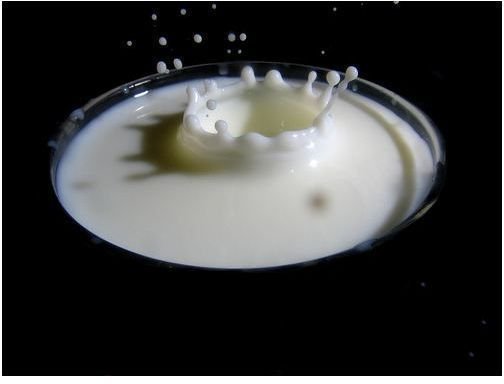Milk Products and Arthritis — Is There a Connection?
Why Milk?
Why would milk contribute to arthritis flares? While there is not a enough of a definite connection based on adequate research, it is possible that milk products and arthritis are related when a milk allergy is present. A substance that the body recognizes as foreign or harmful, such as an allergen, can trigger inflammation as an immune system response.
It has been found that some people who suffer from rheumatoid arthritis are allergic to cow’s milk. For some individuals, substituting dairy products with alternatives to cow’s milk, such as soy milk and goat’s milk, has resulted in a reduction of symptoms. What are the facts on dairy products and joint pain and inflammation? What does this information mean for those who suffer from rheumatoid arthritis?
Supporting Evidence
There is no official warning against drinking milk for people who have arthritis and a milk allergy, and the body of research on the connection is insufficient right now. There are however numerous accounts of people who have discovered for themselves that cutting out cow’s milk or other potential allergens from the diet has made a remarkable difference in rheumatoid arthritis symptoms.
Could the medical community and patients benefit from more studies? Most certainly. The more patients who experience a reduction in symptoms after going on a dairy-free diet and who discuss this potential link with their physicians, the more the medical community may ask for studies. After all, if something as simple as recognizing a milk intolerance can help some arthritis sufferers, what medical professional wouldn’t want their patient to benefit from this knowledge?
There have been some studies over the years on the milk-arthritis link. Of several studies recorded in the US National Library of Medicine archives, one 1986 study, “Food-induced (allergic) arthritis. Inflammatory arthritis exacerbated by milk,” found that yes, drinking milk can worsen joint pain and inflammation. Although the study was conclusive, only one women was tested. Another study in 1987, “Immune complexes in food-induced arthralgia,” found that patients with food allergies who also suffered from arthritis showed a great improvement when allergens were removed from the diet. In a more recent study done in 2006, “General or personal diet: individualized model for diet challenges to patients for rheumatoid arthritis,” it was found that dietary manipulations in the form of the removal of food allergens, “may effect the disease activity for selected RA patients.”
Should You Stop Drinking Milk?
Is there a connection between milk products and arthritis? In cases of people who suffer from rheumatoid arthritis and who also are allergic to cow’s milk, there may be. Should you stop drinking milk if you have arthritis? That is an individual decision that should be made with your doctor.
Going on a milk-free diet for two weeks to find out for yourself if symptoms improve is an option, but it is very important to continue eating a well-balanced diet. To make sure you are still getting the calcium and vitamin D that you may have been getting from milk consider substituting with soy milk, oat milk, or goat’s milk. Make sure you are consuming other sources of calcium such as green leafy vegetables, almonds, and dates. Try to get about ten minutes a day of sunlight for vitamin D absorption.
What is most important is your well-being and a reduction of your rheumatoid arthritis symptoms. Eat well, get moderate exercise, and have an open discussion with your doctor about all possibilities for your health.
References
US National Library of Medicine:
https://www.ncbi.nlm.nih.gov/pubmed/3513771
World’s Healthiest Foods https://www.whfoods.com/genpage.php?tname=foodspice&dbid=131
Center for Food Allergies https://www.centerforfoodallergies.com/arthritis.htm
photo by Andrew Magill (CC/flickr) https://www.flickr.com/photos/amagill/97128201/
